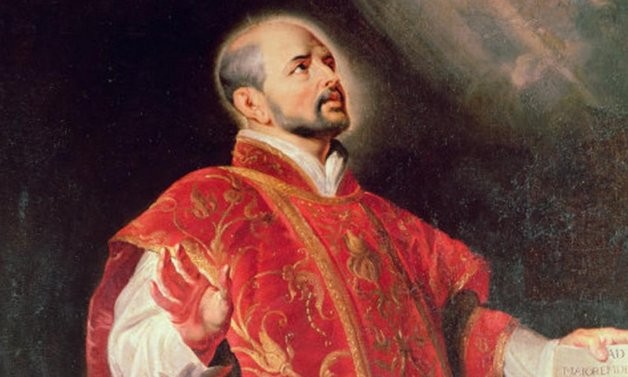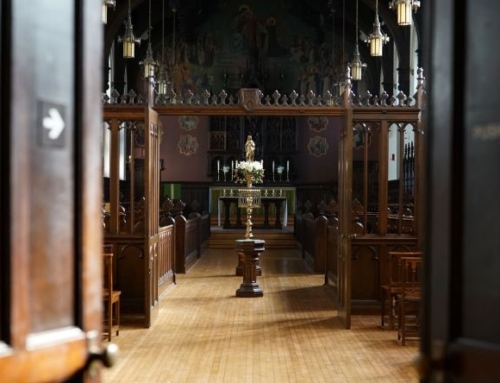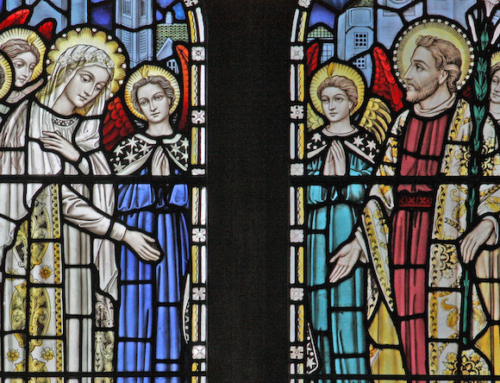This is the fourth post in a five-part series marking the opening of the Year of Consecrated Life.
God has greatly blessed the Church through the Society of Jesus. Since its founding by St. Ignatius Loyola in 1540, the Society of Jesus has arguably been the most influential religious order in the Church. The Jesuits have given the world some of the greatest scholars, missionaries, and preachers to ever live. Furthermore, much of modern Catholic thought and practice has developed from Jesuit spirituality. The Jesuit charism has helped shape how religious life is understood today. Through understanding the particular graces God has given the world through the Jesuits, we can all learn how to become more faithful Christians.
One sign of a true charism is that holiness is continually found throughout the history of an order, rather than just the particular witness of a charismatic founder. The Jesuits exemplify this. They have given the Church great saints throughout the centuries and continue to do so to this day. From St. Ignatius and St. Francis Xavier, to St. Edmund Campion and St. Robert Bellarmine, to modern exemplars like St. Alberto Hurtado and St. Jose Maria Rubio, the Jesuit charism has continuously formed great men in service for the Church.
At Boston College (a Jesuit university), four Latin quotations adorn the portals of the central rotunda of the main building. They read “Ad Majorem Dei Gloriam,” “Quis Ut Deus,” “Mater Dei est Mater Mea,” and “Quid Hoc Aeternitatem.” These four phrases exemplify the graces St. Ignatius brought into the world, as well as what the Society of Jesus can teach us. Let us look at each in turn:
Ad Majorem Dei Gloriam – For the Greater Glory of God: This is the defining Jesuit motto and character. If we do not live to know, love, and serve the Lord, then our lives lack meaning. Religious life should orient the lives of those bound by its form to live life completely for God. The Society of Jesus reminds us that all of our actions should flow from Him and be directed back to Him.
Quis Ut Deus – Who Is Like God: This phrase, a literal translation of the name of St. Michael, reminds the religious that nothing should distract us from our service to God. Many things present themselves as goods in opposition to God. However, as St. Michael told Lucifer, and as the Jesuit charism reminds us, nothing should be sought outside of God Himself. Moreover, this phrase reminds us of the goal of religious life: striving to be like God by growing, through his grace, in holiness.
Mater Dei est Mater Mea – The Mother of God is my Mother: This saying is a personal favorite of mine. Our Mother in Heaven is a powerful intercessor, the Mediatrix of all graces. Religious life must be lived with a special affinity and affection for our Heavenly Mother. The Jesuits remind us of this in a special way with their own devotion and fidelity to Mary.
Quid Hoc Aeternitatem – What Does this Matter for Eternity: The professed religious must always keep his focus on eternal life. Our vows free us to focus more profoundly on the things of God. Religious life means nothing if it is not directed to the salvation of the souls of its members. The Society of Jesus, with its focus on finding Christ in all things, exemplifies the value in giving up all things in order to serve Christ more faithfully.
The Jesuit charism has much to offer aspiring Dominican Preachers. Radical fidelity to the Church, devotion to Mary, and a commitment to the apostolic life express the Jesuit charism. These three things should also define and inform the Dominican way of life, and our preaching for the salvation of souls ultimately redounds to the greater glory of God.
I personally owe much to the Jesuit order. I graduated from both a Jesuit high school and a Jesuit college. It was at these institutions that I was first exposed to religious life. Through these interactions, I became drawn to the living out of the evangelical counsels. I, and countless others, have been drawn to following Christ more fully because of the graces God has given the world through the Society of Jesus.
✠
Image: Peter Paul Rubens, St. Ignatius of Loyola







